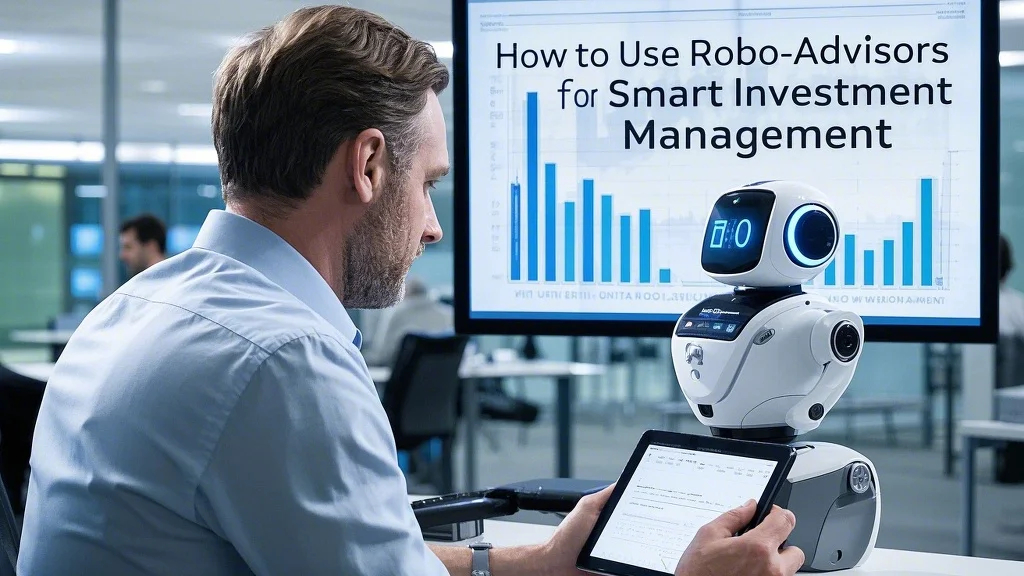The AI Revolution in Financial Advisory Services
The integration of AI in wealth management is transforming how individuals and institutions approach investing and financial planning. No longer limited to simple robo-advisors, today’s artificial intelligence systems analyze vast datasets in real-time to uncover insights human advisors might miss. These sophisticated platforms combine machine learning algorithms with behavioral finance principles to create hyper-personalized investment strategies. The most advanced systems can process earnings calls, economic reports, and global news events to adjust portfolios before market movements become apparent to traditional analysts. This evolution represents a fundamental shift in wealth management, where smart financial tools powered by AI are becoming indispensable for competitive advantage. Major financial institutions now dedicate entire divisions to AI-driven investment strategies, signaling the technology’s transition from experimental to essential in modern portfolio management.
Predictive Analytics for Smarter Investment Decisions
Modern AI investment strategies leverage predictive analytics to forecast market trends with unprecedented accuracy. These systems analyze patterns across decades of market data, identifying subtle correlations that escape human detection. Unlike traditional models that rely on historical averages, AI-powered tools adapt continuously as new data emerges. This capability proves particularly valuable for wealth optimization during volatile market conditions when human emotions often lead to costly mistakes. Some platforms now incorporate alternative data sources like satellite imagery of retail parking lots or social media sentiment analysis to gain investment insights weeks before traditional metrics reflect changes. The most sophisticated tools provide probabilistic outcomes rather than binary predictions, helping investors understand potential risk/reward scenarios at a granular level. These advancements don’t replace human judgment but rather enhance it by providing data-driven perspectives free from cognitive biases.

AI-Driven Portfolio Construction and Management
The application of fintech and artificial intelligence in portfolio management has evolved far beyond simple asset allocation algorithms. Today’s AI systems construct portfolios at the individual security level, optimizing for hundreds of factors simultaneously including tax implications, liquidity needs, and personal values. These smart financial tools can perform continuous tax-loss harvesting across entire portfolios, identifying opportunities human managers might overlook. Some platforms now offer “direct indexing” solutions that create personalized indexes tailored to an investor’s specific circumstances and beliefs. The real power emerges when these systems learn from investor behavior, automatically adjusting strategies to align with demonstrated risk tolerance rather than questionnaire responses. This dynamic approach to portfolio management represents a significant leap forward from static models that require manual rebalancing, particularly for high-net-worth individuals with complex financial situations.
Conversational AI for Enhanced Client Experiences
Leading wealth management firms now deploy conversational AI to provide 24/7 personalized financial guidance through natural language interfaces. These systems go beyond simple chatbots, offering nuanced advice about wealth optimization strategies tailored to individual circumstances. The most advanced platforms can explain complex financial concepts in plain language, analyze hypothetical scenarios, and even detect emotional cues in client communications. This fintech and artificial intelligence combination creates always-available advisory services that complement rather than replace human relationships. Some systems now proactively alert clients about financial opportunities or risks based on spending patterns and life events detected through linked accounts. The technology proves particularly valuable for serving younger investors who prefer digital-first interactions but still require sophisticated financial planning. As natural language processing improves, these AI assistants are becoming increasingly adept at handling sensitive financial conversations with appropriate tone and discretion.
Risk Management Through AI Surveillance
Artificial intelligence has revolutionized risk assessment in wealth management by identifying potential threats before they materialize. Modern AI in wealth management systems monitor portfolios for concentration risks, liquidity constraints, and correlated exposures across seemingly unrelated assets. These tools analyze macroeconomic trends, geopolitical developments, and sector-specific risks to provide early warning signals. For AI investment strategies, risk management extends beyond traditional metrics to include sentiment analysis of market participants and predictive stress testing. Some platforms now simulate thousands of potential market scenarios overnight, allowing advisors to address vulnerabilities before markets open. The most sophisticated systems incorporate client-specific factors like upcoming cash needs or tax situations into risk calculations, creating truly personalized protection strategies. This proactive approach to risk management represents a significant improvement over reactive models that only respond after losses occur.
The Future of Human-AI Collaboration in Finance
The most successful wealth management firms are developing hybrid models that combine AI in wealth management with human expertise. Rather than replacing financial advisors, AI serves as a force multiplier that enhances their capabilities. These collaborative systems handle data-intensive tasks like performance attribution and tax optimization, freeing advisors to focus on relationship-building and complex planning scenarios. The future points toward AI systems that learn from top advisors’ decision-making patterns, creating institutional knowledge that persists beyond individual careers. As the technology matures, we’ll likely see regulatory frameworks evolve to accommodate AI’s unique characteristics in financial advice. The ultimate winners will be investors who benefit from both cutting-edge smart financial tools and the irreplaceable human elements of trust, empathy, and creative problem-solving that machines cannot replicate.



